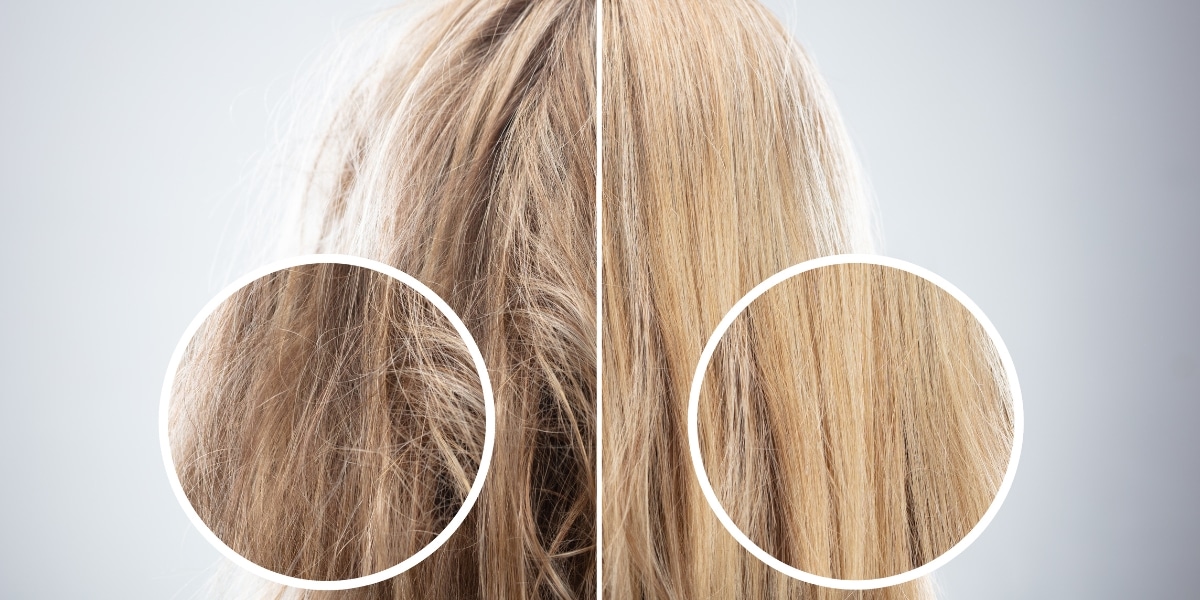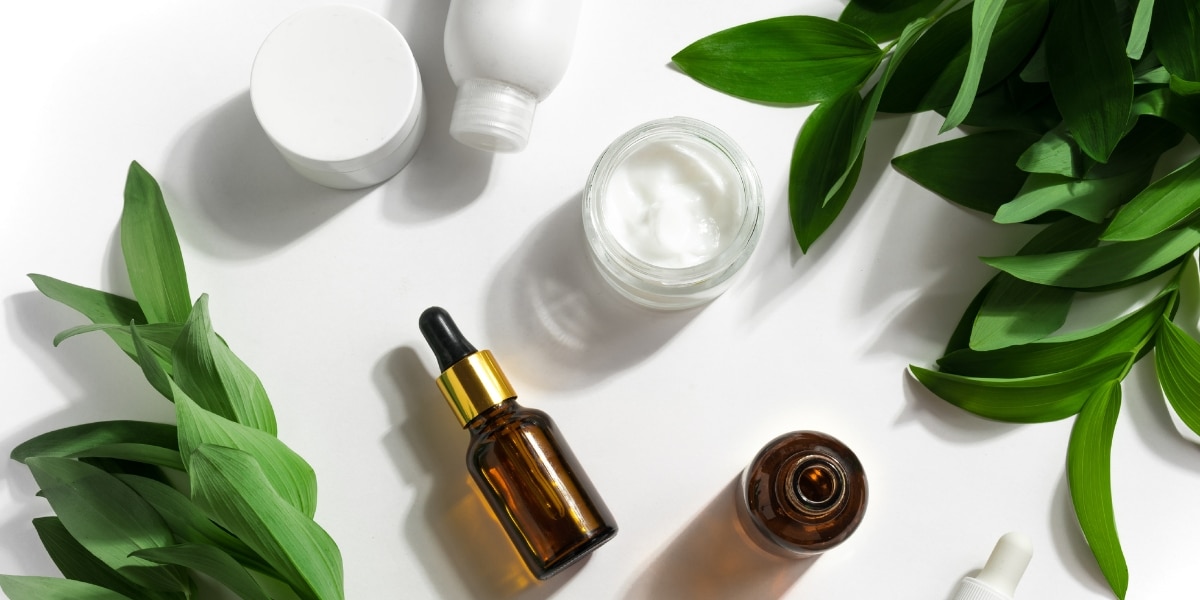Blog
What Is Frizzy Hair & How Can You manage It in 2025?

What helps to stop hair from frizzing will depend on the cause. For some people, humidity makes the hair curl. For others, it may be due to friction, dryness, or damage. Frizzy hair occurs when hair strands develop an irregular, fuzzy texture. It is different from hair that is naturally textured or coily.
People who are prone to frizzy hair may benefit from using hydrating conditioners, reducing damage from brushing and heat styling, and using products that hold the hair in place on humid days. This article discusses why hair frizz happens, how to treat and prevent it, how to repair frizzy hair, and whether any illnesses can cause frizzy hair. It also answers some frequently asked questions.
What is Frizzy Hair:
Frizzy hair refers to hair that appears dry, fluffy, and unmanageable, with strands sticking out in different directions. It occurs when the hair’s cuticle (the outer layer) is raised, allowing moisture from the air to penetrate the hair shaft. This causes the hair to swell and become puffy or frizzy.
Frizz is a common issue, especially in humid climates, but it can affect any hair type, whether curly, wavy, or straight.
Why does hair frizz?
Hair can frizz for several reasons:
- Humidity: People with naturally curly hair may find their hair curls more when exposed to humidity or rain. This can happen because the hair returns to its natural texture wherever the moisture touches it.
- Friction: Hair shafts consist of scales that lay on top of one another. Rubbing them the wrong way can roughen the hair and cause them not to lay flat. Backcombing or teasing the hair, towel drying, and similar practices can cause friction.
- Damage or dryness: Hair that has become damaged or dry due to harsh styling or chemical treatments can become fragile, leading to splitting or snapping. This can also result in a frizzy texture.
- Genetics play a role in hair texture and type — straight, wavy, or curly — and the thickness of hair strands. Genetic factors may also determine how prone hair is to frizz.
- Overuse of Heat Styling Tools: Frequent use of blow dryers, flat irons, and curling irons can strip the hair of moisture, contributing to frizz.
Managing frizzy hair involves keeping the hair hydrated, using the right products (like anti-frizz serums or conditioners), and minimizing heat styling and damage.
How to get rid of frizzy hair
It may not always be possible to quickly get rid of frizzy hair once it has developed. However, some tips that may help in the short term include:
- gently drying the hair, if it is wet
- carefully brushing the hair to remove knots or realign the strands
- using a small amount of lightweight wax, oil, or cream to smooth down frizz
Alternatively, people can change their hairstyle in a way that smooths out frizzy hair. For example, they can use hair pins or tie their hair back into a ponytail.
How to stop hair from frizzing
To prevent frizzy hair, it may help to:
Moisturize the hair
Avoid using harsh or drying shampoos to clean the hair, and use a conditioner after every wash. According to the American Academy of Dermatology (AAD), conditioners help the hair by:
- improving the look of damaged hair
- increasing shine
- decreasing static
- improving strength
- protecting hair from UV rays
Anecdotally, people also report that the following products may help reduce frizz:
- leave-in conditioner
- deep conditioning hair masks
- hair oils such as coconut or argan oil
Minimize breakage
Hair can break or split if it is pulled, heated, or chemically treated too much. To prevent breakage, the AAD recommends:
- Gentle washing: Wet hair is more likely to break, and hair breakage can lead to frizzing. When washing the hair, massage the shampoo into the scalp, then let it run down the strands.
- Avoiding friction: Avoid rubbing the hair with a towel or brushing it too much. Instead, people can gently squeeze excess moisture out and only brush the hair when styling. For those with curly or textured hair, the AAD recommends brushing when the hair is damp, while those with straight hair should let it dry a bit first.
- Loose hairstyles: Tight hairstyles that create tension can cause breakage. Try looser styles to reduce this.
Minimize heat
Heat styling is popular, but it has some disadvantages. The heat itself can damage the hair, as can the tension from straightening or blow drying with a brush.
- using heat styling less often and letting hair dry naturally instead
- when heat styling, using the lowest possible heat setting
- limiting the amount of time the tool is in contact with the hair
People may also benefit from using a leave-in heat protection spray or cream beforehand.
Use the right tools
Some hair care tools, such as brushes, are better for reducing breakage and frizz than others. People may benefit from using:
- a wide-toothed comb or brush
- a microfiber towel, as they are gentle on the hair and help it dry faster
- fabric-covered rubber bands for tying it up
Overnight care
Anecdotally, people report that how they treat their hair at night affects how frizzy it is the next day. Some wear their hair in braids, a bun, or wrapped in a scarf or bonnet to protect it from friction against bedding. Others use silk pillowcases for a similar purpose, but there is currently no research on their effectiveness. It is important to note that, as with the daytime, styling the hair too tightly at night can cause damage and possibly hair loss.
How to manage frizzy hair
When the cause of frizzy hair is damaged, it may take time to repair. The suggestions above will help, but people can also:
Get regular haircuts
Regular haircuts help remove dry and dead ends. Split ends can affect the hair follicle and cause more damage and frizz to occur.
Take a break from chemical treatments
Dyes, bleaching, perms, and chemical relaxers can all damage the hair. If relevant, it may help to take a break from these until the damaged hair has grown out.
Try treatments for damaged hair
Some hair products contain ingredients that are beneficial for strengthening the hair. For example, a 2022 study found that conditioners containing argan oil helped strengthen bleached hair.
Hair care when swimming
People should ensure they wear a swim cap when swimming and immediately wash their hair afterward to avoid the damaging effects of chlorine. Experts recommend using specific shampoo and deep conditioner for those who swim. This ensures hair remains in good condition before and after swimming and may also help with frizz.
Home Remedies for Frizzy Hair:
If you want to achieve a smoother look to your locks, there are home remedies that can restore moisture to help reduce frizz. The added benefit is that increased moisture can also help improve hair health.
1. Apple cider vinegar
Healthy hair has an acidic pH level, which ranges between 4.5 and 5.5. When hair’s pH balance is in this range, the cuticles remain closed and flat. When hair gets too alkaline, cuticles can open up, giving a frizzy appearance.
Apple cider vinegar is an alpha hydroxy acid that’s slightly acidic. For this reason, anecdotal evidence indicates that, when applied topically, it might be beneficial for taming frizzy hair, but more research is needed.
Apple cider vinegar can also help remove product residue, which can make hair appear shinier. As an added bonus, apple cider vinegar has antibacterial and antifungal properties. It may help reduce dandruff, but no studies have confirmed this yet.
To use apple cider vinegar on your hair:
- Mix 1/3 cup of organic apple cider vinegar with 1 quart of warm water.
- Pour as much as is needed onto your hair. You can store the rest for later use, or use all of it, based on your hair’s thickness and length.
- Leave the mixture on your hair for 1 to 3 minutes.
- Rinse with cool water.
- Air-dry.
- Use once or twice weekly.
Apple cider vinegar can have a strong odor, but the smell should go away with rinsing.
2. Coconut oil
Coconut oil is high in lauric acid. When applied to hair, coconut oil is easily absorbed and can help add moisture to the hair and reduce protein loss. Use a small amount of coconut oil as either a prewash or post-wash treatment to increase moisture and reduce frizz. To use:
- Place a small amount of organic coconut oil into your palms. Gently massage it through your hair and scalp.
- Leave on for 15 minutes.
- Wash your hair with shampoo to remove the coconut oil.
You can also leave a tiny amount of coconut oil in your hair after shampooing, or leave it in your hair overnight as a mask. If you use coconut oil as an overnight treatment, use an old pillow case or soft towel under your head to avoid oil stains.
3. Argan oil
Argan oil is rich in moisturizing agents, such as oleic acid and linoleic acid. It also contains antioxidants, such as vitamin E.
Many users of argan oil believe it has protective benefits for hair against heat, such as that generated by styling products or the sun. However, there’s no scientific evidence to support these claims.
To use argan oil to try to reduce frizz:
- Apply a few drops to wet hair before styling.
- Make sure to evenly distribute the oil throughout your hair, from scalp to tip. You can use a comb or brush to help disperse it from roots to tips, or comb it through your hair with your fingers.
- Be careful to only use a small amount of oil. If you overdo it, your hair may look or feel greasy.
You can also use argan oil on dry hair between styling treatments.
4. Avocado
Avocado isn’t just a trendy toast topping. This superfruit is packed with nourishing ingredients, some of which may help strengthen your hair, like vitamins A and E.
It’s also packed with moisture, which can help hydrate your hair and tame frizz. Try making this at-home avocado hair mask:
- Mash a ripe, medium-sized avocado.
- Mix with 2 to 4 tablespoons of coconut oil until you have a smooth, mask-like consistency. It shouldn’t be runny.
- Liberally apply the mask to your scalp and hair.
- Cover your hair with a plastic cap or towel. Leave the mask on for 20 to 30 minutes.
- Shampoo thoroughly to remove the mask.
Use this hair mask one to two times a week.
5. Egg
Eggs are high in saturated fats, biotin, and vitamins. There isn’t much evidence that links eggs to a reduction in hair frizz, but some people believe an egg mask can make hair healthier, shinier, and frizz-free. Don’t use this treatment if you’re allergic to eggs. To make an egg mask for hair:
- Whip up two eggs until they’re frothy.
- Apply the egg mix to your hair and scalp.
- Cover your hair with a plastic cap.
- Leave the mask on for 15 minutes.
- Shampoo thoroughly.
You can vary this treatment by combining one egg with coconut oil or with argan oil. Use the same way, once or twice a week.
Products that may help to repair Frizz Hair:
The products you choose can make or break frizz. Always look for hair care products that contain beneficial ingredients, and avoid those that contain alcohol or harsh cleansers, such as sodium lauryl sulfate. Below are some products that may be able to reduce hair frizz.
Hair serum
Hair serum coats the hair, providing shine and protection against humidity. Hair serum doesn’t heal damage, but it can help protect hair from the elements, helping it retain moisture. When choosing a serum, look for one that’s moisturizing, such as John Frieda Frizz Ease Extra Strength serum.
Leave-in conditioner
Leave-in conditioners are used after shampooing and are applied the same way you’d use any conditioner. The difference is, instead of rinsing out the condition, you leave it on your hair. Leave-in conditioner can help add softness and moisture to hair, keeping it frizz-free. You’ll want to purchase a conditioner that’s specifically formulated to be left in. A good one to try is the good stuff frizz control oil.
Hair mask
Hair masks can provide megadoses of beneficial ingredients to hair that may help keep it nourished, moist, and frizz-free. Look for one that’s sulfate-free, such as Aveeno Oat Milk Blend overnight hair mask.
Tips to prevent frizzy hair
Taking care of your hair means taking care of you. The best way to do this is to ensure you’re eating a healthy, balanced diet. Poor nutrition can lead to dull hair or even hair loss. Here are more tips for improving your hair’s health and reducing frizz:
- Don’t over shampoo. Washing hair too much can dry it out, making it frizzy and unmanageable. Even oily hair should be given a breather between washings.
- Reduce heat. Heat and frizz go together. Wash and rinse your hair in cool or warm water.
- This goes for styling, too. Don’t use the highest setting on your styling tools. Always protect your hair with an anti-frizz or smoothing cream before styling or blow-drying.
- Protect hair from humidity. You can’t stay inside every time it rains or is humid, but you can protect your hair from the elements. When humidity is high, covering your hair can make it more difficult for hair to absorb moisture from the air. Wear a hat or scarf. Leave-in serums can help too.
- De-frizz without eliminating exercise. If you have frizzy hair, working out can ruin your coif fast. Cover your hair with a baseball cap or bandana while participating in sports, both indoors and out, and while swimming.
- Make hair care a priority. Using weekly masks and products designed to reduce frizz can help maintain a sleek look, no matter what the weather or activity.
Summary:
Frizzy hair occurs when the hair’s cuticle is raised, allowing moisture from the air to enter the hair shaft, causing it to swell and become puffy or unmanageable. While frizz is most common in humid conditions, it can also result from factors like friction, dryness, heat damage, and genetics. It affects all hair types, from straight to curly, but can be managed with the right care.
To manage and prevent frizzy hair, it’s important to focus on hydration, avoid harsh products, and minimize damage caused by heat styling and friction. For more tips on managing common hair problems and their solutions, check out our article here. Using moisturizing conditioners, leave-in treatments and oils like coconut or argan oil can help keep hair smooth and shiny. For long-term frizz control, regular haircuts, reducing heat usage, and protecting hair from environmental factors are essential. Additionally, home remedies like apple cider vinegar, coconut oil, and avocado masks may help restore moisture and reduce frizz.
While frizzy hair may not always be eliminated completely, especially for those with naturally curly hair or in humid climates, adopting a gentle hair care routine and using the right products can significantly improve the texture and manageability of frizzy hair. With patience and the right approach, frizz can be reduced, leaving hair healthier and smoother.
Frequently asked questions
Below are some answers to common questions about frizzy hair.
Is my hair unhealthy if it is frizzy?
Not necessarily. Fizziness can happen if a person has wavy or textured hair that comes into contact with moisture and humidity, which can reset the curl pattern. Sometimes though, frizzing does happen due to dryness or damage.
Does hair get frizzier as you get older?
Hair can change as people get older, which may result in more frizz for some. A person may be able to manage these changes with hair care and advice from a dermatologist.
Can you get rid of frizzy hair permanently?
This depends on the cause of the frizz. It may be possible to improve the appearance of frizzy hair, but if a person has curly hair and lives in a humid climate or is particularly prone to frizz, it may not be possible to prevent it entirely. If the cause is dryness or damage, this may go away permanently with proper care.



